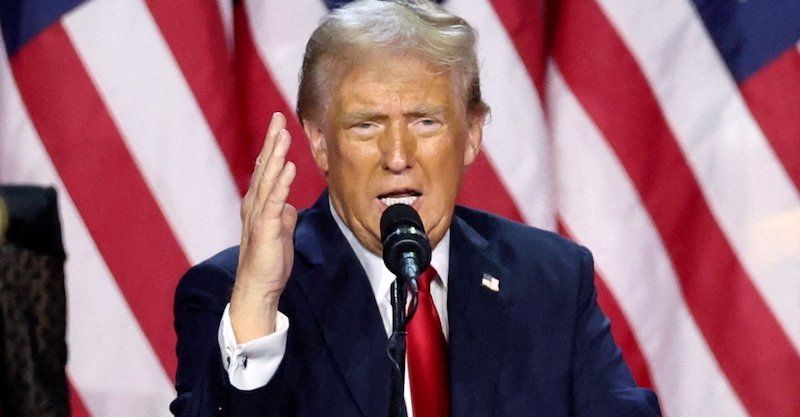President Donald Trump's sweeping blockade of federal grant payments is already having a severe impact, reported The Washington Post on Thursday — as the order is triggering a wave of layoffs at private businesses and nonprofits that depend on that money for regular operations.
So far, according to the report, "several thousand people" have already lost work as a direct result of Trump's policies. "More than 7.5 million Americans work in jobs directly connected to the federal government, according to the Brookings Institution, as contractors or grant workers — some of whom are already out of a job. And there are millions more who work in positions indirectly connected to federal funding delays."
Among the impacted jobs are federal contractors in Austin, Texas and Fayetteville North Carolina, as well as "layoffs at an independent-living facility in West Virginia that relies on federal funding to pay staffers," "furloughs at after-school programs in Maine," and "community health centers in Virginia facing federal funding delays."
RELATED: 'Unprecedented' number of 'panic stricken' calls to Congress thanks to Elon Musk
Trump came into office with a strong economy hovering around full employment, so the effects aren't currently being felt in the wider markets — but Georgetown University professor Harry Holzer, who previously served as an economist for the Department of Labor, isn't so sure that will last: “Having funding yanked so quickly means government contracts are at risk, health research is on hold, and millions of employees are getting conflicting messages about their jobs. We don’t know where this is going to end up, but we can’t dismiss its effects on the economy.”
A federal judge this week blocked Trump's directives to freeze federal grants, which should in theory provide relief to some other private organizations that rely on this funding.
In practice, however, many of these programs still appear to be frozen, including Solar for All, an Environmental Protection Agency program funded by the Biden-era Inflation Reduction Act that commits $7 billion to rooftop solar installs for lower-income households.
Leave a Comment
Related Post
